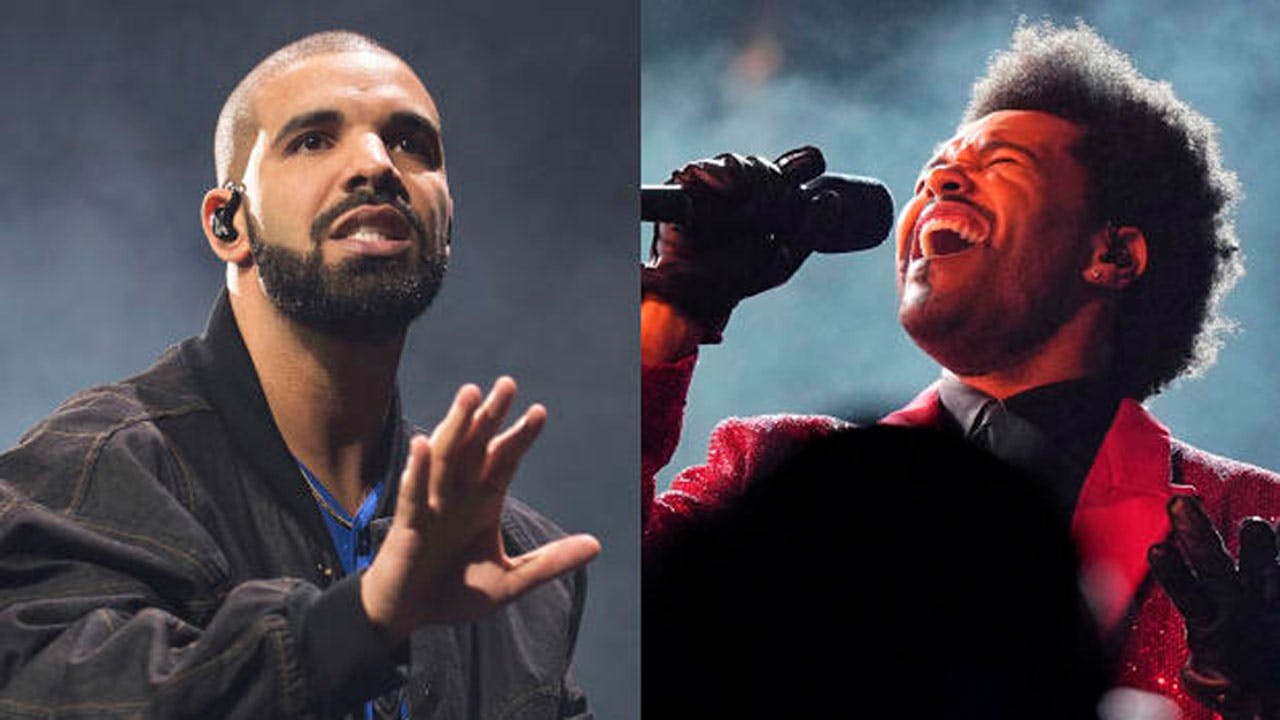AI-Made Song Not By Drake, The Weeknd Pulled Off Digital Platforms

A song that clones the voices of A-list musicians Drake and The Weeknd using artificial intelligence was pulled from social media and music streaming platforms Tuesday following a backlash from publishing giant Universal Music Group, which said the song violated copyright law.
The AI-generated song, "Heart on My Sleeve," went viral over the weekend, racking up more than 8.5 million views on TikTok before being pulled off the platform Tuesday. The song, which the artists have never actually sung, was also pulled off many YouTube channels, though versions were still available on both platforms.
The full version was played 254,000 times on Spotify before being yanked by the leading music streaming platform.
Universal Music Group, which releases music by both Drake and The Weeknd, was quoted by the BBC as saying digital platforms have a "legal and ethical responsibility" to prevent the use of services that harm artists.
The creator of the song, who's been identified only by the handle "@ghostwriter," claimed on their now-deleted YouTube account that the track was created using AI software trained on the musicians' voices from existing video clips.
"I think that is part of what is making it difficult for the untrained ear to differentiate between these AI-generated and non-AI generated tunes," music journalist Hattie Lindert told CBS News on Tuesday. "It's pretty convincing when there are so many Drake tracks that AI can train from."
Neither artist has reacted publicly to the song, but Drake had previously been critical of his voice being cloned using artificial intelligence.
"This is the final straw, AI," he said in a now-deleted post on Instagram after seeing a fan-made AI-generated video in which he appeared to be rapping.
This latest AI controversy comes as tech giants Microsoft and Google look set to go head-to-head as they develop competing AI-powered "chatbot" technology, following the launch of Google's Bard AI software last month.
"AI itself will pose its own problems. Could Hemingway write a better short story? Maybe. But Bard can write a million before Hemingway could finish one," Google Senior Vice President James Manyika told "60 Minutes" correspondent Scott Pelley in an interview that aired on Sunday. "Imagine that level of automation across the economy."